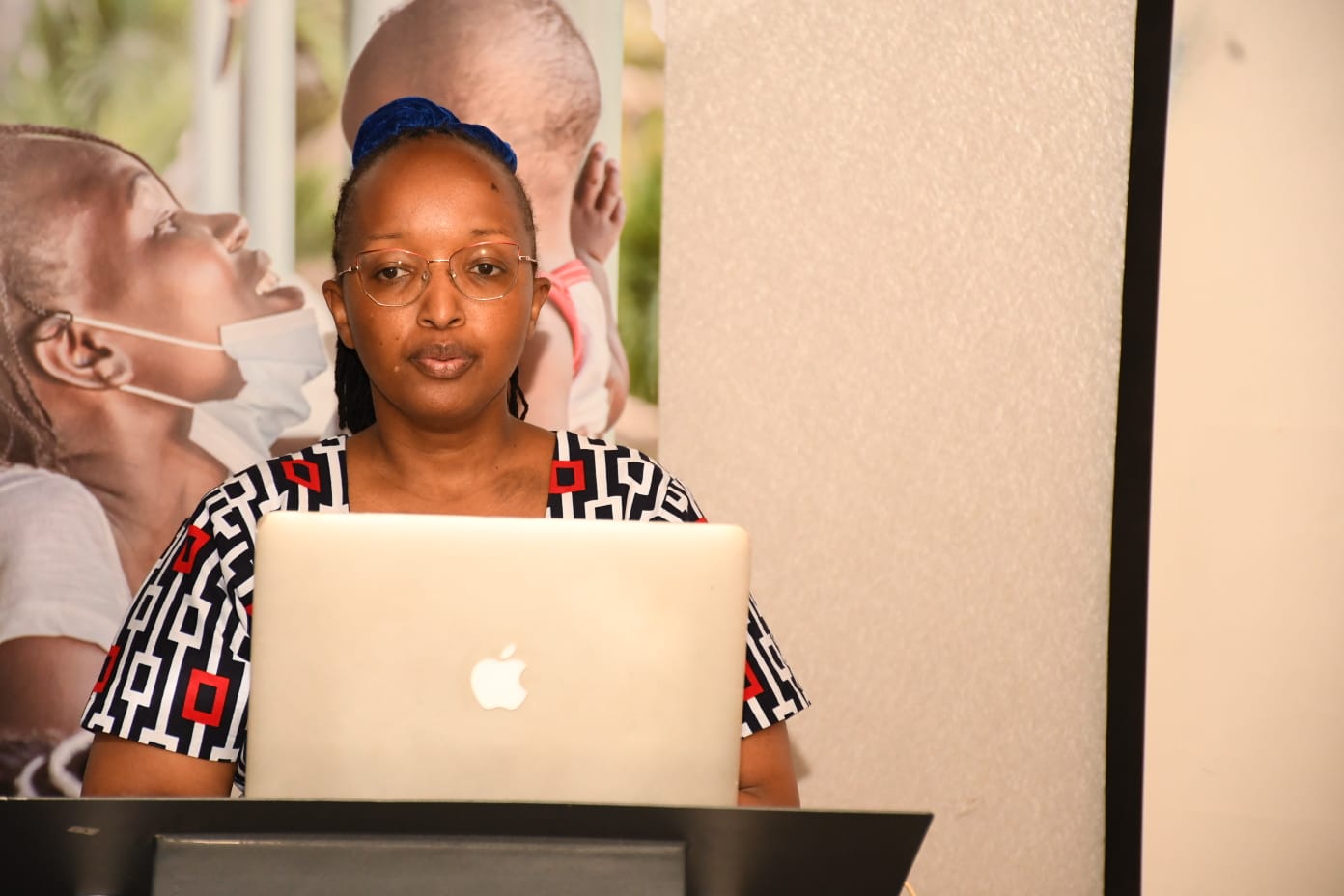Dr Estella Waiguru, from the division of reproductive health, maternal and childhealth at the ministry of health during the dissemination workshop of findings from back on track project of the African Institute for development policy (AFIDEP).
The African Institute for Development Policy (AFIDEP) today released groundbreaking findings from its three-year Back-on-Track initiative. This major project, which aims to put Kenya, Ethiopia and Nigeria back on track for Sustainable Development Goal 3 (SDG 3), has shed light on the dire state of maternal, newborn and child health (MNCH) in Kenya. The launch took place at a high-profile event at the Park Inn by Radisson Hotel, which brought together influential leaders and stakeholders committed to improving health outcomes.
The Back-on-Track project, supported by the UK-based Children’s Investment Fund Foundation (CIFF), has used rigorous data analysis and innovative methods to assess Kenya’s progress on key health indicators. “Back-on-Track is building a data-driven roadmap of essential interventions that can truly transform lives at scale,” said Dr Michael Chipeta, the project manager. His findings underscore the importance of using data from Health Management Information Systems (HMIS), Demographic and Health Surveys (DHS), and Geographic Information Systems to map access to and effectiveness of health services across the coun
One of the most striking findings of the report was the continuing impact of the COVID-19 pandemic on health services. While child immunisation rates have remained resilient across the country, eight districts reported significant declines in antenatal care visits and skilled birth attendance. “These disparities highlight the urgent need for more resilient health systems to withstand future public health crises,” said Dr Chipeta, urging stakeholders to address the vulnerabilities exposed by the pandemic.
Dr Edward Serem, Director of Reproductive and Maternal Health at the Ministry of Health, represented in absentia by Dr Estella Waiguru of the Reproductive, Maternal and Child Health Division, echoed these sentiments during the event. He noted that the findings closely align with Kenya’s health priorities and could significantly inform the country’s response to challenges such as maternal mortality and child survival.
“As we approach 2030, achieving SDG 3 is critical,” said Dr Serem. “These findings are invaluable in aligning our health programmes with these goals, and ensuring that every mother and child receives the care they deserve.”
Despite some progress in areas such as reducing neonatal and under-five mortality, the report also highlighted persistent challenges. Kenya is on track to meet certain targets, particularly for skilled attendance at birth and meeting demand for family planning. However, the need for targeted interventions remains critical, particularly in maternal mortality and immunisation coverage. “Effective health interventions are based on accurate and timely data that reflect the realities on the ground,” said Dr Serem, stressing the importance of consistent data collection for effective health policies.
The report also highlights progress in reproductive health, with demand satisfaction for modern contraception set to rise to nearly 75% by 2022. However, disparities remain, particularly in rural and underserved areas, requiring focused initiatives to ensure equitable access to reproductive health services. “We cannot rest until every woman, regardless of where she lives, has access to the health care she needs,” said Dr Chipeta.
AFIDEP’s findings also highlighted systemic challenges plaguing Kenya’s health sector, such as inadequate funding and inconsistent data quality. Currently, only 9% of the national budget is allocated to health, falling short of the 15% target set by the Abuja Declaration. “Increased investment in MNCH is essential, and we must advocate for improved data systems and enhanced digital tools to strengthen our health sector,” Dr Chipeta urged.
As AFIDEP moves forward with its commitment to bridging research, policy and practice, the evidence from the Back-on-Track project will play a transformative role in shaping health policy across Kenya.”Our goal is to empower public institutions to implement evidence-based policies that promote sustainable improvements in maternal, newborn and child health,” concluded Dr Chipeta.
The results of this project not only highlight the challenges facing the health system, but also pave the way for a better, healthier future for mothers and children across Kenya.











[…] Read:https://kenyadailypulsenews.wordpress.com/2024/10/31/afidep-unveils-critical-findings-on-maternal-an…The SHA’s suspension of overseas treatment coverage has led to further restrictions, especially for patients requiring specialised care not available in Kenya. In addition, the survey found that patients lack clear information about SHA benefits, premium structures and eligibility requirements, leaving many unprepared for the changes under the SHA.Evans Majau, Chair of the Caucus of Patient-Led Organisations of NCDs, emphasised the urgency of these issues. “The survey results reveal critical gaps in the SHA’s ability to effectively serve Kenyan patients, especially those with chronic and complex conditions such as cancer, diabetes and cardiovascular disease. The implementation of the SHA must prioritise transparency, access to specialised care and patient engagement in order to fulfil the promise of universal health coverage in Kenya.”The NCD Caucus calls on the Ministry of Health and SHA leaders to act swiftly to address these challenges and advocate for greater patient involvement in decision-making. The organisation remains committed to advocating for accessible, quality health care for all Kenyans and emphasises that through collaborative efforts, Kenya can work towards a system that ensures timely and equitable care for every patient. […]